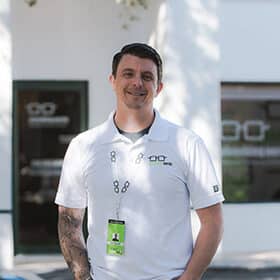Many people are surprised to find out that plumbing is a lot more complicated than it looks! It’s so important to keep clean water separate from used or dirty water that there are three discrete plumbing systems in most municipalities: potable water, sanitary drainage, and storm drainage. Each of them is vital in its way of keeping a city healthy.
Potable water
In a well-maintained system, every drop of water that enters your home is potable, or safe to drink – even the water in your toilet tank! In general, larger cities depend on surface water sources such as lakes or rivers, while more rural areas rely on groundwater.
After the water is collected, it passes through a treatment process to remove pollutants and make it safe to use. Here in Bonita Springs, our water comes from the Floridan Aquifer and is treated with a combination of lime softening and reverse osmosis, then stored in groundwater tanks to be pumped into our homes.
Sanitary drainage
So what happens to that water after it’s been used? Many rural homes have their septic tanks, but in a municipal system, all wastewater and anything else that’s in it goes into the sewers. From there, it heads to a wastewater treatment facility to be cleaned up before it reaches any bodies of water.
Municipal water treatment facilities can take care of a staggering amount of water. For example, the City of Fort Myers Waste Water Treatment Division can treat a combined total of over 20 million gallons per day! Most of this water is released into the Caloosahatchee River, with some of it reclaimed and recirculated in the community after being treated to potable-water standards, which is a common practice designed to conserve water.
Storm drainage
During heavy Southern rainfall, all that water has to go somewhere! The most common destination is the storm drains that you see in the streets. Generally, storm drainage is done through a gravity-based system and is kept separate from waste water drainage, but sometimes a city will implement a mixed system where it all goes to the same sewer pipes.
Many storm drainage systems will divert rainwater directly to the nearest body of water without sending it through a treatment process first. This is why it’s so important not to dump substances such as motor oil into the storm drains; those pollutants will contaminate the fresh water nearby and damage the ecosystem.
Another common issue is a blockage. Especially during a heavy storm, sometimes leaves or other debris will clog a storm drain, leading to localized flooding. In a mixed system, this could even lead to raw sewage backing up into the streets or even into people’s homes. Municipal workers and plumbers are always on alert to clear blockages before any major damage occurs.
Call the Plumbing, Cooling & Electrical Nerds when the systems fail
Even though a municipal water system is a marvel of modern engineering, all systems fail from time to time. Luckily, we are experts in solving plumbing problems of all kinds. Whatever your plumbing needs may be, just call (239) 215-3330 or get in touch via our website.
